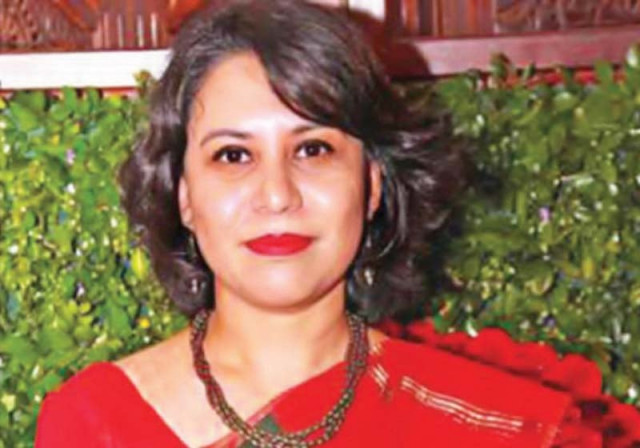In a first, Pakistan expels Bangladeshi diplomat
Moushumi Rahman given 48 hours to leave the country

Moushumi Rahman. PHOTO: FILE
“The government of Bangladesh has been asked to withdraw Moushumi Rahman within 48 hours,” said a senior official on Thursday. Bangladesh Foreign Secretary Shahidul Haque confirmed Islamabad had on Tuesday asked Dhaka to recall Moushumi, who is the political counsellor and head of chancery at the High Commission of Bangladesh in Islamabad.
Speaking on condition of anonymity, the official said Moushumi was ordered to leave the country for her involvement in activities not compatible with her diplomatic status. The foreign ministry did not immediately comment on the development.
This is the first time Pakistan has expelled any Bangladeshi diplomat and it appears to be a tit-for-tat move after Islamabad on December 23 had recalled one of its diplomats, Farina Arshad, from Bangladesh at Dhaka’s request.
Farina was ordered to leave Bangladesh after she was accused of financing a suspected extremist said to be spying for Pakistan. Islamabad, however, dismissed the charges as baseless.
The latest diplomatic row between the two countries is apparently linked with differences between Pakistan and Bangladesh over the recent execution of certain Bangladeshi opposition politicians for events related to the 1971 war.
In November last year, Bangladesh executed senior Bangladesh Nationalist Party leader Salahuddin Quader Chowdhury and Jamaat-e-Islami’s secretary general Ali Ahsan Mohammad Mujahid on charges of genocide and rape by a domestic ‘war crimes tribunal.’
But Islamabad said the executions were in violation of a tripartite agreement signed by Pakistan, India and Bangladesh in 1974. The three countries had agreed at the time that in the interest of regional peace, no one would be put on trial for alleged crimes committed during the 1971 war.
Bangladesh, however, reacted strongly over Islamabad’s reaction.
Pakistan’s High Commissioner in Dhaka Shuja Alam was summoned by Bangladesh’s foreign ministry to register a protest over Islamabad’s objections to the executions.
Not only that, on Wednesday Bangladesh’s top court upheld the death sentence on the Jamaat-e-Islami chief Motiur Rahman Nizami, paving the way for his execution within months.
The Supreme Court dismissed an appeal by 72-year-old Nizami, who was convicted of murder, rape and orchestrating the killing of top intellectuals during the 1971 war. “The court upheld the death sentence in three out of four charges. We’re very happy,” prosecutor Tureen Afroz told reporters. “Most importantly, the death penalty was upheld for the killings of the intellectuals.”
Published in The Express Tribune, January 7th, 2016.



















COMMENTS
Comments are moderated and generally will be posted if they are on-topic and not abusive.
For more information, please see our Comments FAQ